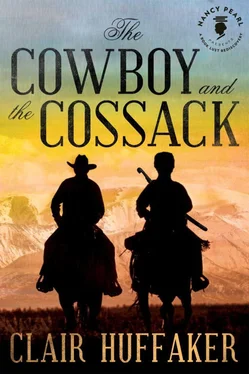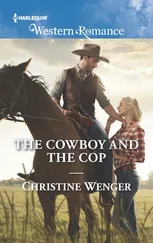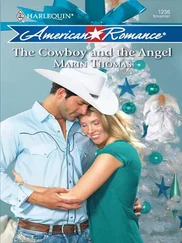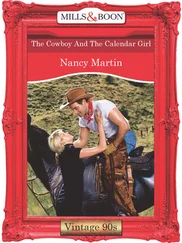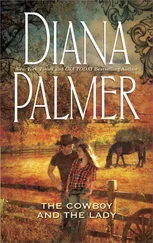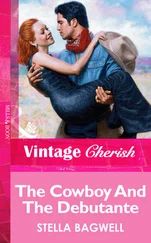“Kirdyaga, Vody, Gerasmin, Pietre, Yakov.” I frowned. “That’s all, best m’ memory serves.”
“Talk about dumb fuckin’ names!” Rufe shook his head.
“Our names are just exactly as dumb t’ them!” Old Keats looked at Purse, Natcho and Link, who happened to be sitting near each other. “Want some real dumb names? Percival! Ignacio! Lincoln Washington Jefferson Jackson!”
“Hell,” Purse said, “no reason t’ get pissed off at us.”
“Shoot, no,” Link added. “We didn’t have nothin’ t’ do with gettin’ them names.”
“That’s exactly what I’m sayin’, goddamnit!” Keats told us.
“No point gettin’ all excited,” Dixie said. “Levi’s the only one who’s got t’ keep track a’ them dumb Russian names.” He added, with a kind of a mean, troublemaking look at me, “And friendly as he’s got with them, an’ with that stupid name a’ his, he’s the perfect one t’ do it.”
You could never tell about Dixie. A few of the others laughed, and as tired as I was that night, I started to stand up to fight if need be. But Shad was on his feet already. “My official given name ain’t Shad,” he said quietly and not too easily. “It’s Shadrack.” He looked around with hard eyes. “Anybody want t’ make a joke about that?”
Nobody wanted to, which was kind of natural under those circumstances.
He went on. “Nobody’s gonna make any fun of anybody’s name from here on out. Not the Russian names. Not our own. And it’s time t’ get some sleep.”
My bedroll wasn’t far from his, so we wound up facing each other a little away by ourselves while we pulled off our boots.
“You sure are good at savin’ me from fearful fights,” I said, pulling off one boot.
“Hate t’ get my messenger killed.” He pulled his first boot off.
I tugged on the second boot. My left foot’s always been bigger than the right one, for some reason. “I didn’t know your official given name was Shadrack.”
He pulled his second boot off. “It ain’t.”
“Well, then—”
“I didn’t like the way that talk was goin’, because it wasn’t fair.” He took off his hat and hung it over his saddle horn. “A name ain’t never nothin’, good or bad, until the man behind that name makes it so.” And then he laid his head down in the seat of the saddle and was asleep.
I thought about what he’d said for a while, feeling real good about it, and then before I knew it, I was asleep too.
In the days that came, Rostov kept teaching me things, and maybe just in general conversation learning a little bit, too. For example, he asked me about the leather chaps that most of us cowboys wore, and I told him they were mostly for protecting your legs in rough brush country where, if you were riding hard, scrub oak and snagging low branches and such could cut you all to hell without them.
Rostov said they didn’t have that kind of country over there. Mostly just grass and thick stands of trees going on forever, and sometimes willows where there were creeks or water naturally laid up for long times. But he still liked the look and the idea of chaps and thought mine were kind of artistic because of the brass studs I’d lined the edges with. I also had a hunch he thought they might be useful in protecting a man’s legs in battle.
Another time, he took an interest in the hard leather cuffs around my wrists. I told him that they were partly for fancy and partly to keep my wrists from being chewed up and rope-burned when I was working cattle and using the lariat on my saddle. He nodded politely at my answer, but there was no way for him to know exactly what I was talking about because he’d never seen anybody do any roping. I was tempted to lasso a tree branch or a rock or something, but it seemed kind of foolish so I just let it go that it was a way of throwing a rope and catching a cow, presuming you threw the rope right in the first place. Then he told me about the closest thing he knew of for that purpose. It was called an “ urga ” and it was used by herders in Mongolia and Siberia. It was a thirty-foot-long pole that was light and strong, and there was a loop hooked to the end of it. If you wanted to catch something, you just rode up near it, held out the long pole, and dropped the noose around the animal’s neck.
The very idea of lugging a thirty-foot-long pole all over the place struck me as being funny as hell.
But there were other things that weren’t so funny, like why the cossacks all wore those scarlet-red vests. That was so that if they got their bodies chopped up badly in a battle, the bleeding wouldn’t show so much. The vest would be the same color as the flowing blood it was soaking up.
Therefore, if a bleeding cossack rode on through a battle half dead, he’d look unbloody and unbeaten. And if he was just barely strong enough to stay in the saddle and sit up straight, he’d still look like the toughest horseman who ever bore down on you.
And then one day Rostov told me about the swans.
It was late in the afternoon, and we were crossing a wide plain, riding at an easy walk for a change.
Two huge, beautiful birds flew high over us, crossing gracefully under the lowering sun and then finally dipping and turning and at last disappearing far away in the northern sky. I’d never seen a sight quite like those big, white, lovely birds. It seemed as though they were almost softly playing together, and even teasing each other a little, while they were taking their own kind of a friendly, casual stroll a thousand feet up in the clear blue air. It was just too pretty not to watch, even though I was supposed to be searching the horizon, and I felt Rostov glancing at me before they flew out of my sight.
“Swans,” he said.
“Well—sure. Anybody knows that.” The only swan I’d ever seen before in my life was in a picture book.
“Male and female.”
“How could ya’ tell, from so far?”
“They always travel in couples, rather as man and wife, if you will. Do you have many swans in Montana?”
“Well—not too many.”
He looked at me briefly with those eyes of his, and I got the definite feeling that I not only couldn’t ever get away with lying to him, but that I’d have a hard time even ever exaggerating to him. It was as though the back of my mind was saying loud and clear to the back of his mind, “This dumb little bastard never saw a swan before in his life.”
I said out loud, “They sure are beautiful.”
He said thoughtfully, “They are beautiful. In more ways than one.
He stopped for a drink, taking the water bag from his saddle. He offered it to me first, and without hardly thinking about it because by then it seemed a natural thing to do, I took it. Unplugging the top, I said, “I ain’t really too up on swans. What d’ya’ mean, more ways than one?”
“They choose a mate when they’re very young. And they stay together for all the rest of their lives.”
“Well, that is a kind of a nice, friendly thing.”
“We could learn much from them in terms of loyalty, steadfastness, love.”
I handed him back the water bag.
He drank just enough to wet his mouth and throat. “When I first came out east to Siberia, I was just a youngster, about your age. That’s when I saw my first pair of them.”
His thinking was so far away, and he was going back so quietly to some gentle memory, that it never even occurred to me to take any exception to his describing me with the word “youngster.”
“We’d been out hunting, and we’d made camp near the end of the day, when two swans flew overhead. The other men were also new to the country, and one of them grabbed his gun and shot the female of the swans. It fell almost at our feet, dead.” He took a long breath, hooking the water bag back onto his saddle. “All that night the male swan flew overhead, circling the camp in the dark, never landing anywhere to rest, and crying pitifully in its low, keening way for some answer from its mate. I’ve never heard cries more pleading, more terribly sad.” He paused a moment. “The next morning, it continued to circle high over us, still in its own soft, searching way, making those tragic, weeping sounds.” Rostov looked up at the sky above, but he was still really looking into the past. “Then at noon, with the sun nearly directly above us, the swan finally lost all hope. It gave up and stopped crying for an answer from her. It flew up and up, as high and as far as its weakened wings would take it into the sky. And then that great bird simply folded its wings and plummeted down like a stone to smash itself to death on the earth far below.” He paused and then said huskily, “It had done the one thing it possibly could do to rejoin its mate.”
Читать дальше
